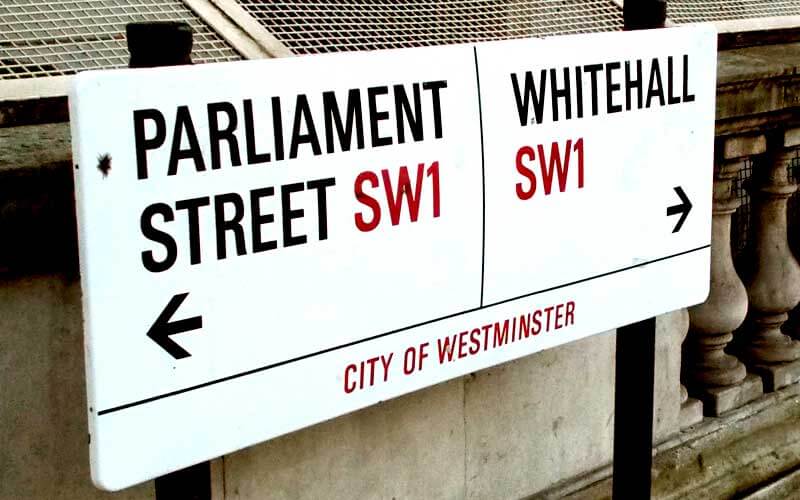The government has admitted launching its much-criticised Disability Action Plan without a clear idea of how much – or how little – it would cost.
Disabled people’s organisations have already dismissed the short-term plan as a series of “empty promises” that fail to address the “dire situation” disabled people are facing.
The plan, which contains 32 “practical actions”, was launched by disability minister Mims Davies last month, following a 12-week public consultation.
But all 32 actions appeared to be low- or zero-budget measures, and there were no striking new policies, with apparently no new legislation or spending commitments before the general election.
Now a freedom of information (FoI) response from the Cabinet Office has underlined concerns from disabled people that the plan will make little “tangible difference” to their lives.
Disability News Service (DNS) had asked for figures showing the cost of each of the 32 policies included in the plan.
But in response to the DNS request, the Cabinet Office’s freedom of information team replied: “We are writing to advise you that following a search of our paper and electronic records, we have established that while an initial assessment of the likely costs of actions has informed actions included in the Disability Action Plan, the information you requested is not held by the Cabinet Office.”
Instead, the Cabinet Office said, the government was “currently going through budget planning for the financial year 2024-25” and “the ‘costings’ for each of the 32 actions within the Disability Action Plan will be incorporated within this process, unless funded in the 2023-24 budget”.
It is likely that the Disability Unit is determined not to repeat the embarrassment it faced in 2021 when a similar FoI request from DNS about the National Disability Strategy produced figures that showed the government was offering just £3.95 million of new funding, or 28p for every disabled person in the UK.
Fazilet Hadi, head of policy for Disability Rights UK, said the failure to produce any figures was “not a surprise”.
She said: “Almost all the actions were about holding discussions, producing guidance, integrating disability equality into existing policies and plans or taking belated action to implement the Equality Act.
“Some research projects were proposed but it is likely that these can be accommodated from within the Disability Unit budget.
“The Disability Action Plan, published in advance of a general election and with around an eight-month life span, was always going to be a very limited document.
“Its scope and ambition fall far short of what is needed, a transformational ten-year plan to tackle systemic and deep-seated inequalities and injustices.”
Paula Peters, a member of the national steering group of Disabled People Against Cuts, said: “A Disability Action Plan with little or no additional funding in place means the action plan will never bring any improvements to disabled people’s lives.
“It shows yet again the low regard the government have for disabled people.
“A pitiful plan that won’t amount to anything. Shame on them.”
Asked how the government justified not having any funding figures for its DAP actions, and why it had been able to provide figures for the National Disability Strategy but not for the Disability Action Plan, a spokesperson for the government’s Equality Hub declined to add to the FoI response.
The action plan is intended to run alongside the longer-term National Disability Strategy, which itself was heavily criticised by a cross-party committee of MPs late last year.
The Commons women and equalities committee published a follow-up report last week showing the government had accepted just two of its recommendations, and had dismissed a call to collaborate with disabled people on developing a new ten-year strategy.
The committee said in December that the National Disability Strategy was merely “a list consisting mainly of pre-existing departmental actions with minimal strategic thinking behind how those actions interact”.
A note from the editor:
Please consider making a voluntary financial contribution to support the work of DNS and allow it to continue producing independent, carefully-researched news stories that focus on the lives and rights of disabled people and their user-led organisations.
Please do not contribute if you cannot afford to do so, and please note that DNS is not a charity. It is run and owned by disabled journalist John Pring and has been from its launch in April 2009.
Thank you for anything you can do to support the work of DNS…

 Urgent letter from UN to Labour government warns: We think your cuts continue Tory attack on disability rights
Urgent letter from UN to Labour government warns: We think your cuts continue Tory attack on disability rights ‘Disastrous’ cuts bill that leaves legacy of distrust and distress ‘must be dropped’
‘Disastrous’ cuts bill that leaves legacy of distrust and distress ‘must be dropped’ Disabled people receiving care were ‘ignored by design’ during the pandemic, Covid inquiry hears
Disabled people receiving care were ‘ignored by design’ during the pandemic, Covid inquiry hears